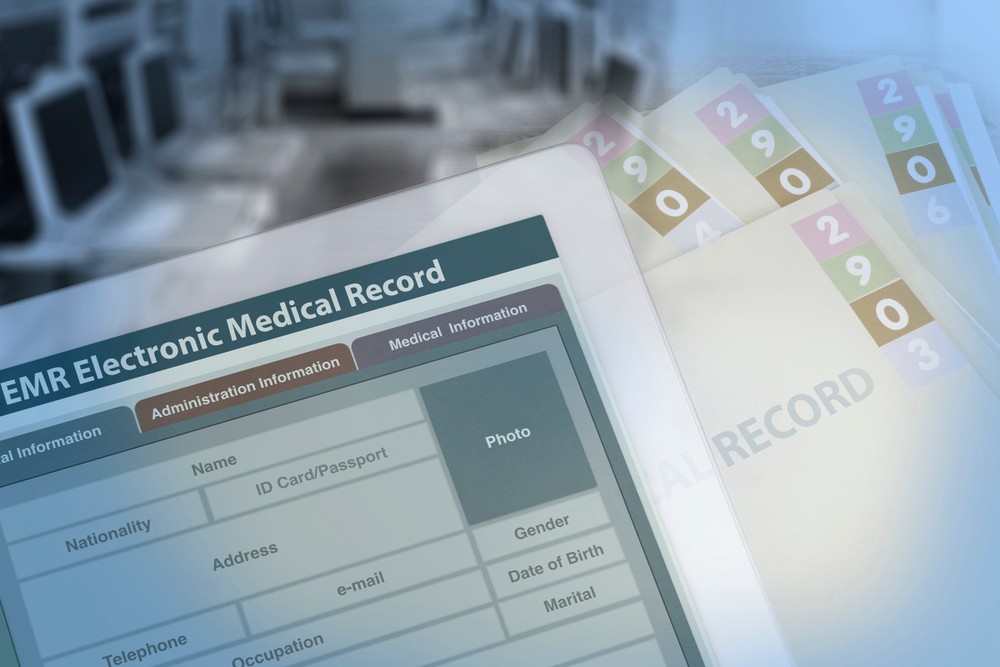
10 Jul How to Access Medical Records, Even When You Don’t Feel Like It
Simplifying Medical Records Retrieval
Medical records retrieval can seem like a daunting task, but it doesn’t have to be.
Here’s a quick rundown:
- Identify the required records: Know which documents you need and from where.
- Submit a request: Contact the healthcare provider with a HIPAA-compliant release form.
- Await processing: The provider compiles and securely transfers records.
- Access securely: Receive records via a secure, HIPAA-compliant portal.
Medical records hold the key to managing legal cases, coordinating care, and supporting insurance claims. Yet, the process of accessing these vital documents often feels overwhelming, especially with the intricate layers of HIPAA regulations and varied provider systems.
For legal professionals like Lisa, a busy partner in a mass tort firm, efficiently retrieving medical records is not just a task—it’s a critical component to case success. The administrative burden, frequent follow-ups, and tight deadlines can make the retrieval process daunting. However, understanding how to steer these challenges can greatly improve workflow efficiency and case preparation.
We’ll break down the steps and tools you need to streamline medical records retrieval, ensuring you have the right information at your fingertips when you need it most.
Understanding Medical Records Retrieval
Retrieving medical records can be a complex process, but knowing the steps involved can make it much easier. Here’s how you can steer the maze of medical records retrieval:
Steps to Request Medical Records
1. Written Request
Start by submitting a written request to the healthcare provider. This often involves completing a HIPAA-compliant release form, which ensures that patient privacy is protected. Make sure to specify exactly which records you need to avoid unnecessary delays.
2. Provider Response Time
Once your request is submitted, the provider has a set period to respond. According to HIPAA guidelines, they should provide records within 30 days, but this can vary based on state laws and the provider’s policies. It’s important to follow up if you don’t hear back promptly.
3. Online Portals
Many healthcare providers now offer online portals where you can submit requests and track their status. These portals are typically secure and HIPAA-compliant, allowing you to access medical records digitally without the hassle of paper forms.
Overcoming Common Challenges
Fees
One of the biggest problems is the cost associated with retrieving records. Providers often charge fees for copies, especially for large files or when third-party services are involved. Being aware of these potential costs upfront can help you budget accordingly and avoid surprises.
Security
Ensuring the security of medical records is crucial. Always use secure methods for submitting requests and receiving records. Online portals often provide encrypted communication to protect sensitive information.
Digital Access
Accessing records digitally is becoming the norm. It not only speeds up the process but also reduces the risk of errors compared to handling paper records. Digital workflows eliminate the need for phone calls and mail, making the process more efficient.

Understanding the intricacies of medical records retrieval and how to overcome its common challenges can save you time and frustration. By following these steps and utilizing available technologies, you can ensure a smoother and more secure retrieval process.
Next, we’ll explore the tools and technologies that can make this process even more efficient.
Tools and Technologies for Efficient Retrieval
In today’s world, leveraging technology is essential for efficient medical records retrieval. Let’s explore some of the tools and technologies that can help you access records faster and more securely.
Leveraging Technology for Faster Access
Electronic Health Record (EHR) Systems
EHR systems have revolutionized the way healthcare providers manage patient information. These digital records provide a comprehensive view of a patient’s medical history, making it easier for authorized users to access necessary data quickly. By using EHR systems, healthcare organizations can streamline the retrieval process and reduce errors associated with paper records.
Health Information Exchanges (HIE)
HIEs enable the secure sharing of health information across different healthcare organizations. This technology facilitates the seamless exchange of medical data, ensuring that you can access the information you need, regardless of where the patient received care. HIEs play a crucial role in improving the efficiency of medical records retrieval.
Digital Workflows
Implementing digital workflows eliminates the need for manual processes, such as phone calls and faxing. This not only saves time but also reduces costs. By automating tasks like requests and approvals, digital workflows improve productivity and ensure that records are retrieved in a timely manner.
Innovative Retrieval Platforms
Platforms that offer HIPAA-compliant exchanges between requestors and providers allow transactions to be completed efficiently. These platforms connect users with a vast network of providers, offering quick access to comprehensive patient data. Such solutions can significantly boost productivity and turnaround times.
Ensuring Data Security and Compliance
SOC 2 Type 2 Certification
Data security is paramount when dealing with sensitive health information. SOC 2 Type 2 certification ensures that a service provider has robust security controls in place. This certification demonstrates a commitment to maintaining high standards of data protection, which is crucial for safeguarding patient information during the retrieval process.
Audit Trails
Audit trails provide a detailed record of all activities related to medical records retrieval. These logs include information about who accessed the records, when they were accessed, and any changes made. By maintaining comprehensive audit trails, organizations can ensure accountability and compliance with regulatory requirements.
HIPAA Compliance
Compliance with HIPAA regulations is essential for protecting patient privacy. The use of secure, HIPAA-compliant portals and technologies ensures that sensitive information is handled appropriately. This not only protects patients but also minimizes the risk of legal issues for healthcare providers.

By leveraging these tools and technologies, you can improve the efficiency and security of medical records retrieval. Embracing digital solutions not only speeds up access but also ensures compliance with important regulations, providing peace of mind for both providers and patients.
Next, we’ll explore how American Retrieval integrates these technologies to offer superior customer service and support.
Conclusion
At American Retrieval, we understand the importance of efficient and secure medical records retrieval. Our services are designed to seamlessly integrate with client databases, providing real-time updates and ensuring that you have access to the information you need, when you need it.
Exceptional Customer Service
We pride ourselves on delivering personalized customer service. Our dedicated account service professionals are always ready to assist you, ensuring that your experience is smooth and hassle-free. Unlike other services, you won’t be bounced around from one agent to another. Instead, you’ll have a single point of contact who understands your needs and can swiftly address any concerns.
Integration and Real-Time Updates
Our integration capabilities allow for real-time updates, giving you the ability to track the status of your requests at any time. This transparency ensures that you are always informed and can plan your next steps with confidence. Our system is designed to be user-friendly, making it easy for you to manage your records efficiently.
Commitment to Compliance and Security
Your data security is our top priority. We adhere to the highest standards of data protection, ensuring that all processes are HIPAA-compliant and that your sensitive information is safe. Our robust security measures, including SOC 2 Type 2 certification and comprehensive audit trails, provide peace of mind for both you and your clients.
In conclusion, American Retrieval combines cutting-edge technology with exceptional customer service to provide a superior medical records retrieval experience. Our commitment to integration, transparency, and security makes us a trusted partner for your record retrieval needs. Let us handle the complexities, so you can focus on what matters most—achieving success for your clients.



